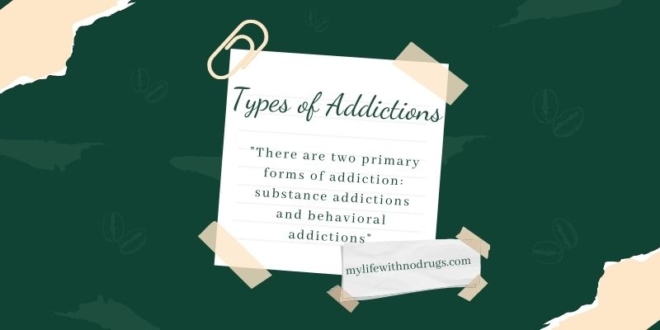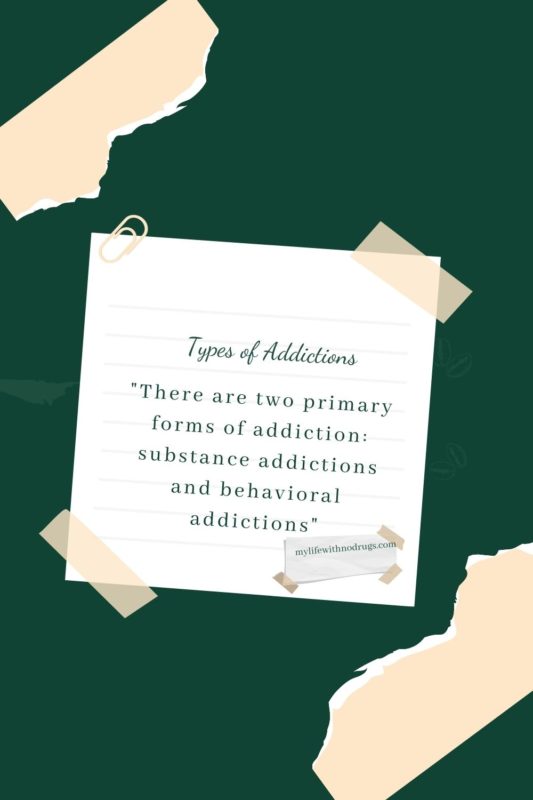There are two primary forms of addiction: substance and behavioral addictions. People with substance addictions are addicted to drugs or alcohol, while people with behavioral addictions deal with compulsive behaviors, such as social media addiction or exercise addiction. Keep reading to learn more about substance and behavioral addictions.
Substance and Behavioral Addictions
Behavioral Addictions
Behavioral addictions can often be overlooked because they’re less obvious, though they share many of the same triggers, symptoms, and consequences as substance addictions. We tend to place more value on the recovery of someone who’s addicted to drugs than someone recovering from an addiction to online gambling.
But this type of addiction can have severe consequences if left unchecked, especially if it begins to impact a person’s emotional and physical health as the addiction continues. Negative impacts on mental health, withdrawal, isolation and more can cause addiction relapse.
Here are some of the signs of behavioral addictions to be aware of:
- obsessive thoughts over the behavior
- a significant amount of time spent participating in, planning, or thinking about the behavior
- rejecting social gatherings or important events in pursuit of the behavior
- increasing the frequency and intensity of the behavior
- poor performance at work or school (i.e. missing deadlines, not attending class or meetings, low grades)
- lying to friends and family about the reality of the addiction
- trying to stop the behavior, but failing to do so several times
Shopping Addiction
Someone who’s addicted to shopping will continue to spend money in-store or online whether or not they need the items or even want them. This, as with many other behavioral and substance addictions, is usually a behavior that manifests as a way to cope with negative feelings or mental illness. Shopping addiction has been compared to obsessive-compulsive disorder (OCD).
Exercise Addiction
When used in moderation, exercise is a healthy pursuit. But for someone who’s addicted to exercise, they’re usually completely preoccupied with hitting their next goal (weights lifted, pounds lost, miles run). They may neglect personal responsibilities and physical signs that their body needs rest. Their exercise regime is typically high-intensity and not flexible. These addictions also tend to co-occur with eating disorders and other behavioral addictions.
Phone Addiction
Cell phone addiction is most commonly seen in younger generations, such as teenagers and young adults, and more specifically in girls. Compulsive phone use can be a result of many things: an obsession with texting, using social media, checking emails, etc. This type of addiction has been connected with personality variables such as neuroticism, self-esteem, impulsivity, and self-image. It’s also been linked to many serious issues like sleep problems, anxiety, stress, and depression.
Internet Addiction
Internet addiction is similar to phone addiction, but it leans heavier on depressive symptoms in terms of the consequences of long-term use. Many times, people with Internet addictions have other underlying mental health issues and experience issues with in-person relationships, eating habits, sleep, and more.
Video Gaming Addiction
Video gaming can be a positive thing, but when it becomes a primary source of emotional fulfillment, it can become a behavioral addiction. People addicted to video games often use gaming as an escape from everyday life. They might be using it to cope with mental illness, a lack of friendships in real life, or other difficult issues.
Sex-Related Addictions
Sex-related addictions can include pornography addiction, sex addiction, online chatting, and more. A person with a sex-related addiction might engage in unsafe sex, pursue risky behaviors, jeopardize relationships, and be unable to control their sexual impulses. Thoughts, actions, and plans are all centered on sex, including fantasies and conversations.
Work Addiction
You’ll often hear about “workaholics” who just can’t put the laptop away or stop answering emails. Consequently, these are the individuals who tend to get promotions, raises, and other recognitions, making “workaholism” an attractive pursuit to many people. But this is a behavioral addiction that can lead to negative impacts on personal relationships and mental health, often contributing to high levels of stress, anxiety, and depression.
Substance Addictions
Substance addictions, like behavioral addictions, can be exacerbated by or lead to issues with mental health. Many people have co-occurring conditions, which can mean substance abuse and a mental illness, or at times substance abuse and behavioral addiction.
This is because these issues share similar root causes: stressful life circumstances, major change, an inability to cope with circumstances, a family history of abuse, financial status, and other problems.
Here are a few of the most common substance addictions:
- alcohol
- marijuana
- tobacco/nicotine
- synthetic drugs
- prescription medications (including painkillers, stimulants, anxiety medications, etc.)
- benzodiazepines
- methamphetamine
- cocaine
- heroin
- opiates
- ketamine
- hallucinogens
- LSD
- MDMA
- inhalants
- PCP
When a person misuses prescription or illicit drugs, they can become reliant on the substance to feel reward and pleasure, which is known as a chemical dependency. Over multiple uses, the brain changes to become used to the levels of dopamine and other neurotransmitters. This is what causes cravings and relapse, as a person needs higher levels of a drug to produce the same effects.
Recovering from Substance and Behavioral addictions
You can overcome substance and behavioral addictions with the right goals and treatments. First, it’s important to uncover the underlying issue of your addiction to figure out what’s causing it. You can do this by talking to friends and family, speaking with a therapist, or going to a rehab center. If you feel like the addiction is serious, it might be time to get professional help. No matter the case, help is available and you can regain control over your life in recovery.








